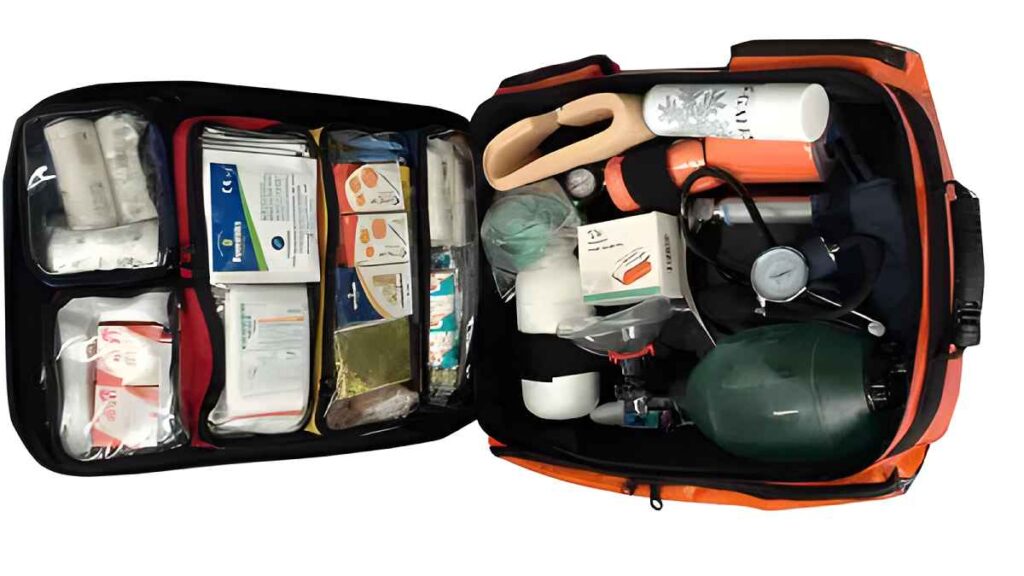Introduction
Travelling is an enriching experience that allows you to discover new cultures, get away from it all and create lasting memories. However, it’s important to take care of your well-being when you travel, as unexpected health problems can ruin your plans. This article details the main medications you need to take with you when traveling, whether on business, with the family or on a solo adventure. These precautions will help ensure that your trip runs smoothly and safely.
Pre-trip planning
The first step to ensuring good health when traveling is to plan ahead. Important points to consider are :
- Medical consultation: If you have a health problem or are planning to travel to a remote or exotic region, we recommend that you consult your doctor. He’ll give you precise advice based on your state of health and your destination.
- Getting vaccinated: Ask whether your destination requires any vaccinations. Some countries require proof of vaccination before entry.
- Prescription drugs: Make sure you have enough prescription drugs for the duration of your trip. Some medicines may be difficult to obtain abroad.
- Over-the-counter medicines: Find out about over-the-counter medicines that can relieve common ailments such as motion sickness, allergies and minor aches and pains.
- A first-aid kit: Remember to pack a basic first-aid kit with bandages, disinfectants, painkillers and medication for gastrointestinal ailments.
What essential medicines to take with you on a trip
- Motion sickness medication : If you are prone to motion sickness on planes, trains, cars, boats, etc., you should carry motion sickness medication such as dimenhydrinate or meclizine.
- Painkillers: Taking painkillers such as ibuprofen or paracetamol can help reduce headaches, muscle pain or fever.
- Antihistamines: Antihistamines can be used to treat allergic reactions, insect bites and rashes. They are also effective against insomnia caused by jet lag.
- Anti-diarrhea medication: Travelers’ diarrhea is common, especially in areas with poor water sanitation. Bring antidiarrheal medication to relieve symptoms immediately.
- Antibiotics: Broad-spectrum antibiotics can be useful for bacterial infections, but should only be used as a last resort and under the supervision of a healthcare professional.
- Illness-specific medication: If you suffer from a chronic illness, make sure you have enough medication for the duration of your trip. Consult your doctor for further advice.
- Birth control pills: If you use birth control pills, make sure you have enough on you. Make sure you know the laws and regulations of your destination regarding contraceptive methods.
Essential tips for traveling safely with your medications
- Keep your medicines in their original packaging: It’s important to keep your medicines in their original packaging to avoid problems at border crossings and for easy identification.
- Carry a copy of your prescription: If you travel with prescription medication, carry a copy of your doctor’s prescription in case you need to prove the authenticity of the medication.
- Find out about local regulations: Before you travel, find out about local regulations and import regulations . Some countries impose strict restrictions on medicines, particularly those containing controlled substances.
- Protect medicines from heat and humidity: Store medicines in a cool, dry place, preferably in sealed bags to protect them from moisture.
- Keep your medicines safe: Make sure your medicines are securely stored to prevent theft and unauthorized access.
Conclusion
Travelers’ health is an essential aspect of any adventure. By taking appropriate medication and taking precautions, you can minimize the risks to your health during your trip. Don’t forget to consult your healthcare professional before you leave for advice specific to your situation. With careful planning and a well-equipped medication kit, you can venture out into the world with confidence, knowing that you have the means to manage any potential health problems that may arise along the way.
